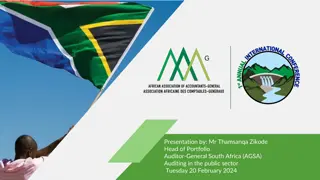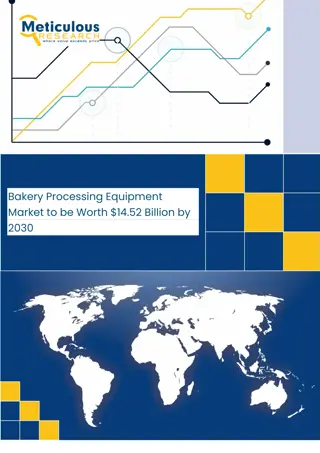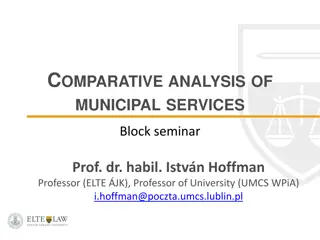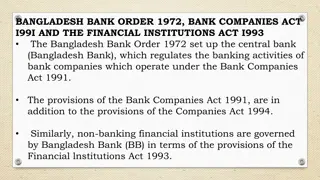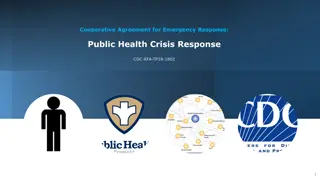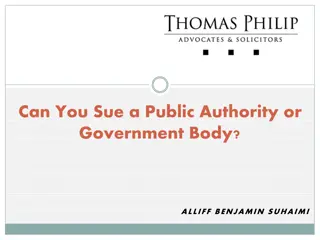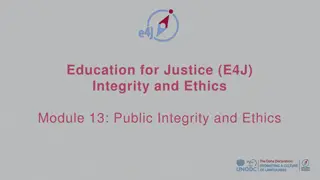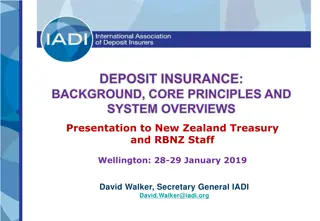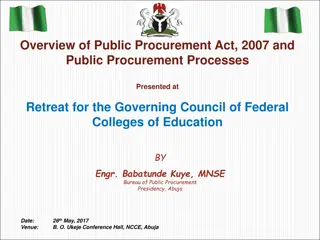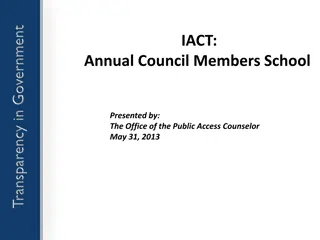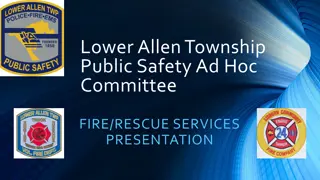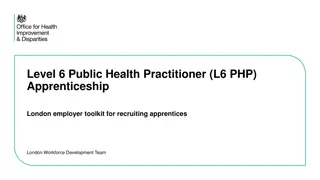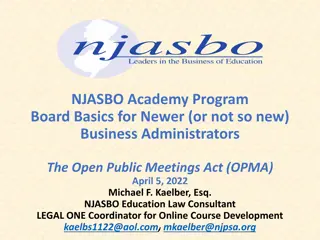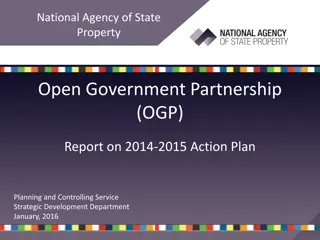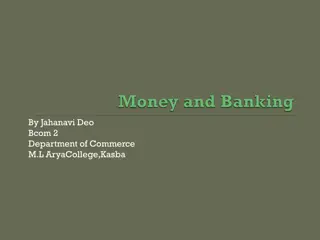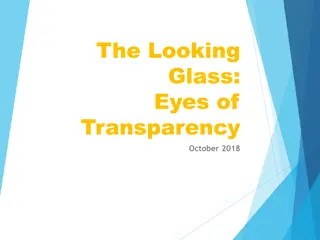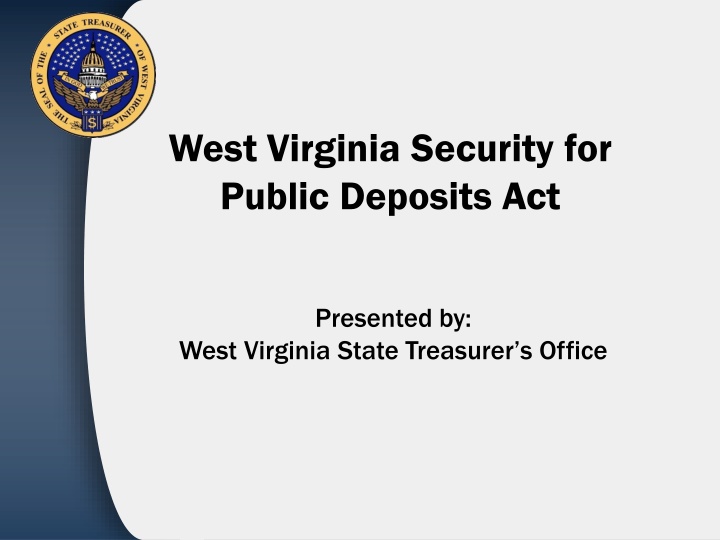
The WV Security for Public Deposits Act
Learn about the West Virginia Security for Public Deposits Act, its impact on public depositors, participants involved, how it works, and responsibilities. Find out the methods of collateralizing public funds and the key dates for implementation.
Download Presentation

Please find below an Image/Link to download the presentation.
The content on the website is provided AS IS for your information and personal use only. It may not be sold, licensed, or shared on other websites without obtaining consent from the author. If you encounter any issues during the download, it is possible that the publisher has removed the file from their server.
You are allowed to download the files provided on this website for personal or commercial use, subject to the condition that they are used lawfully. All files are the property of their respective owners.
The content on the website is provided AS IS for your information and personal use only. It may not be sold, licensed, or shared on other websites without obtaining consent from the author.
E N D
Presentation Transcript
West Virginia Security for Public Deposits Act Presented by: West Virginia State Treasurer s Office
Agenda Introduction Overview of Proposed Rules Timeline Question & Answer
WV Security for Public Deposits Act WV Code 12-1B-1 et seq establishes the methods of collateralizing funds. Methods of Collateralizing Public Funds: Dedicated Single Bank Method Multibank Pooled Method These methods will apply to all public fund deposits. Implementation date on or before March 2024.
Impact on Public Depositors The WV Security for Public Deposits Act ( 12-1B-1 et seq) supersedes all existing state and local law related to securing public deposits.
Participants Defined Designated State Depository Designated State Depository means any state or national bank or any state or federal savings and loan association in this state meeting the requirements of this act. Qualified Escrow Agent Qualified Escrow Agent means any bank or trust company approved by the State Treasurer to hold collateral pledged to secure public funds. Public Depositor Public Depositor means the state or any county, municipality, spending unit, or other political subdivision of the state.
How does it work Public depositors will select a Designated State Depository to hold their public funds. Designated State Depository will select one of the two collateral methods allowed. Based on defined criteria, the Designated State Depository will pledge collateral at the required amount. Designated State Depository will select a Qualified Escrow Agent to hold and safekeep the collateral for the public funds (no RFP process) in the name of the State Treasurer. Both the Designated State Depository and the Qualified Escrow Agent will report weekly to the Treasurer s Office via the Treasurer s Online Collateral System.
Responsibilities Public Depositor determines if funds are public funds. The Public Depositor must inform the Designated State Depository and the State Treasurer s Office of such funds/accounts. There are no exemptions or exceptions to this Act. All public funds will need to be collateralized through the Treasurer s Office. All parties involved will need to sign the appropriate forms provided by the State Treasurer s Office.
Selecting a Designated State Depository (DSD) Is your depository already an approved DSD? If not, what is the process to become an approved DSD? If your depository is not able to be approved as a DSD, what should you do?
Becoming an Approved Designated State Depository Letter requesting to become a Designated State Depository Copy of bank charter Treasurer s banking agreement Corporate resolution Contacts: Contacts: Julie Hefner-Ferrell: Julie.hefner-Ferrell@wvsto.com or 304-340-2718 Heather Fowler: heather.fowler@wvsto.com or 304-340-1562 Katie Gibson: katie.Gibson@wvsto.com or 304-340-1560
Restricted Financial Institution List Pursuant to W. Va. Code 12-1C-1 et seq., the State Treasurer is authorized to prepare and maintain a list of financial institutions engaged in a boycott of energy companies. Inclusion on the restricted financial institution list is not an indication of unsafe or unsound operating conditions at any financial institution nor any risk to consumer deposits. For additional information on the Restricted Financial Institution List, visit www.wvtreasury.com/Restricted- Financial-Institutions
Treasurers Online Collateral System All public depositors will have access to see their accounts at their designated state depository and qualified escrow agent. Depositors will not have visibility to specific collateral held for their deposits. All collateral will be held in the name of the State Treasurer.
Annual Confirmation All public depositors will provide an annual confirmation for the accuracy of the public fund deposits reported. The Treasurer s Office will provide a list of accounts on file. The public depositor should compare the list to their records and with their financial institution. Any discrepancies should be reported to the Treasurer s Office.
Timeline Legislative process Education Initiatives Development and Testing Online Collateral System Creating user manual & procedures for end users Onboarding
Question and Answer
Thank You West Virginia State Treasurer s Office CollateralGroup@wvsto.com 304-340-5020

